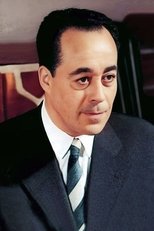
|
|
Mustapha Skandrani (in arabic : مصطفى سكندراني), born on November 17, 1920 in the Casbah of Algiers in an Algiers family, and died on October 18, 2005 at his home, is a pianist, performer and composer of Algerian Chaâbi music and Arab-Andalusian music. Mustapha grew up and studied up to the elementary certificate in the Casbah, where he was born near the sea and the port of Algiers. Sid-Ali, his father and his two uncles Hamoud and Lahabib were passionate about Andalusian classical music. It was in this atmosphere favorable to music that Mustapha began his musical career by enrolling in the Nadi school "Et-Taraqi" in his hometown. His teachers were Mohamed Ben Teffahi and Abderrezak Fakhardji. His uncles were founding members of the Mouloudia Club of Algiers where he signed in this club as a striker, but he was much more interested in instruments and musical intonations. As a multi-instrumentalist, Mustapha Skandrani is first noticed for the guitar, the mandolin then the guitar game before choosing the piano in 1938, which he will first study with the master of Andalusian music, Ahmed Sebti and then with Cheikh El Hadj Mrizek the great master of the hawzi song who mastered all kinds of musical instruments such as the darbouka, the piano, the violin and the mandola. Mustapha Skandrani composed more than 300 modern pieces of chaabi and 187 compositions for qsayed and songs including "Youm El Djemaâ", "El Harraz", "Kifechhilti", "Qahoua ou lateye", "A bouya hnini", "A laini filaati". He also composed several songs for the great masters of chaabi including: Hadj El Anka, Abdelkader Chaou, Hadj M'rizek, Amar Ezzahi and El Hachemi Guerouabi. After being conductor of: Hadj El Anka, El Hachemi Guerouabi, Amar Ezzahi, Reinette l'Oranaise and several great singers, Mustapha devoted himself to teaching by taking a class at the Conservatory of Algiers. In 1981, Mustapha Skandrani directed the Conservatory of Algiers. Mustapha Skandrani died on October 18, 2005 at his home after a long illness, at the age of 85. He is buried in the Sidi M'hamed cemetery. |
